


Select one of the options below:
See why Joshua was drawn to earn a biomedical engineering master's, and learn how the online program allowed him to pursue his degree while moving all over the world for his career.
Biomedical engineering lies at the intersection of biomedical challenges and engineering solutions. This coursework-only degree provides a transdisciplinary focus on improving health, fighting disease, and aiding persons with disabilities. This program is uniquely positioned to offer educational strengths in engineering, the sciences, and animal and human medicine. Students gain a foundation in biomedical engineering in a flexible online format designed for working professionals.
During the online biomedical engineering master's program, you explore concepts in:
As healthcare demands rise due to an aging population, so will the demand for biomedical engineers to develop innovative medical solutions. Recent data from the U.S. Bureau of Labor Statistics anticipates employment for biomedical engineers to increase by 23% by 2024.
The skills you learn in this program are applicable to the fields of:
Such a wide range of relevant industries gives you the flexibility to pursue an array of employment opportunities.
To ensure you get a comprehensive education, CSU developed the master's in biomedical engineering degree with input from four colleges and 13 departments within Colorado State University. This provides you with both depth and breadth of knowledge to bring into your career.
Learn from faculty with a wealth of research and industry knowledge in topics like:
For added focus in your studies, select courses that fit into interest areas, such as:
Learn more about the requirements and curriculum for the online master's in biomedical engineering.
Trained biomedical engineers use their expertise in engineering, biology, medicine, and related fields to develop and apply cross-disciplinary skills to solve complex problems and improve health care technology from diagnostics to treatment.
Graduates from our program may be interested in pursuing careers in a wide range of industries, such as:
The resources below may be useful for exploring additional career opportunities for graduates with biomedical engineering master’s degrees.
Hear what our students say about the online biomedical engineering program and the experience of studying online with CSU.
Edwin served in the first Gulf War, and his passion for biomedical engineering is fueled by his interest in serving other veterans. See how earning this degree made a career in this field possible.
Interactions with the faculty depend on the specific course, but in general you will have access to instructors during their office hours, via email exchange, and through discussion board postings. You will collaborate on projects and exchange ideas with fellow classmates with the same tools.
The program is delivered entirely online; on-campus attendance is not required. Courses can be accessed online at any time so you can study at the time that best fits your schedule. For this online program you can expect a similar workload to a traditional on-campus program. You will spend approximately 9—12 hours per week preparing for each three-hour course. This will vary depending on your learning and studying style. This time would be spent on activities such as:
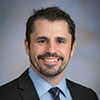
David Bark – Assistant Professor
(970) 491-1443 | david.bark@colostate.edu
Dr. Bark’s research is focused on cardiovascular fluid dynamics and biomechanics, with an aim of understanding how cells produce and respond to forces in a flow environment in relation to cardiovascular disease. His research is also focused on developing diagnostics, prostheses, and therapeutics to benefit human health by integrating experimental and computational engineering techniques with biological approaches.

Seth Dillard – Associate Teaching Professor
(319) 400-1377 | seth.dillard@colostate.edu
Seth Dillard is an Associate Professor in the Department of Mechanical Engineering and School of Biomedical Engineering at Colorado State University. Since joining CSU in January of 2022, Dr. Dillard has taught Introduction to Mechanical Engineering (MECH 103), Problem-Based Learning in Biomedical Engineering (BIOM 300), Finite Element Analysis & Computational Fluid Dynamics (MECH 301), Machine Design (MECH 325), Engineering Design Practicum (MECH 486), and Quatitative Systems Physiology (BIOM 576). He is also a faculty adviser for several Senior Design teams and honors students in mechanical engineering and biomedical engineering.
Other teaching and research interests include cardiovascular biomechanics, image-based modeling, and energy systems. Dr. Dillard’s experience working as a paramedic prior to entering the world of engineering cultivated a strong passion for applying engineering principles to address human needs as part of a team – a passion he loves to share with his students.
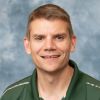
Matt Kipper – Associate Dean for Graduate Programs, Walter Scott, Jr. College of Engineering & Professor, Chemical & Biological Engineering
(970) 491-0870 | matthew.kipper@colostate.edu
Matt Kipper joined the faculty of the Department of Chemical and Biological Engineering at CSU in the fall of 2006. Prof. Kipper earned B.S. and Ph.D. degrees in Chemical Engineering from Iowa State University. He also performed postdoctoral research at the National Institutes of Standards and Technology and the National Institutes of Health.
Professor Kipper’s research is focused on developing new nano-structured and micro-structured materials for biomedical applications. In biological systems, including cells, tissues, and organs, functional moieties are organized into structures at various length scales, including the nano-scale and micro-scale. This organization is often essential for biological function.
His research lab develops materials that take advantage of this organization and assembly to prepare materials that interact with proteins, cells, and tissues in favorable ways. These materials can be used for tissue engineering, and to control tissue healing around implanted medical devices. Materials with tunable antimicrobial activity, antioxidant activity, and functional optical properties are also developed by the Kipper research lab.
We collaborate with researchers from other departments at CSU, and from institutions around the world. Students and postdocs in the Kipper group study chemical engineering, bioengineering, and materials science. These students have a variety of academic backgrounds lending their unique skillsets to a highly interdisciplinary group.

Diego Krapf – Associate Professor
(970) 491-4255 | krapf@engr.colostate.edu
Diego Krapf was born in Rosario, Argentina. During his Ph.D. research he worked on infrared optics on nanostructured materials. Then, Dr. Krapf joined the research group of Prof. Cees Dekker in the Netherlands where he focused on single-molecule biophysics using solid-state nanopores. Since August 2007, he serves as a faculty member in the Electrical and Computer Engineering Department at Colorado State University. Dr. Krapf is also associate professor in the School of Biomedical Engineering. His current research interests include cellular biophysics at the single-molecule level, with particular emphasis on membrane and cytoskeleton dynamics.
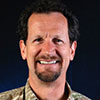
David A. Prawel – Senior Research Scientist
(970) 491-4386 | david.prawel@colostate.edu
David Prawel has been a consultant and entrepreneur in 3D technology and digital product development for over 30 years. He helped build 5 startup companies, with one successful IPO and one in the works. He earned Bachelor's and Master's degrees from the University of Buffalo, and a Ph.D. from Colorado State University in Biomedical Engineering. He is currently on the Research Faculty in Mechanical Engineering at CSU, where he researches biomimetic and polymeric biomaterials. He also recently founded a community-access center for 3D printing and personal fabrication, www.idea2product.net.
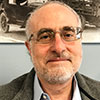
Stuart A. Tobet – Professor
(970) 491-1672 | stuart.tobet@colostate.edu
Stuart A. Tobet, Ph.D., is a professor of biomedical sciences and biomedical engineering at Colorado State University. He currently serves as Director of the School of Biomedical Engineering. Tobet obtained his Ph.D. from the Department of Applied Biological Sciences at MIT in 1985 and completed postdoctoral training at Harvard Medical School. He became Assistant Professor of Neurology at Harvard Medical School in 1989 and was a visiting instructor at the University of Hawaii Medical School that same year. In 2000, Tobet became Associate Professor of Physiology at UMASS Medical School. In 2003, he joined the Department of Biomedical Sciences at CSU.
Tobet began several transdisciplinary projects at CSU that brought together faculty in biomedical sciences with those in engineering, chemistry, mathematics, and computer science, leading to his appointment as Director of the School of Biomedical Engineering in 2010. He has directed courses in developmental neurobiology, biomedical entrepreneurship, grant writing, and STEM communication. Tobet has co-authored more than 135 refereed journal articles and more than 10 book chapters or monographs. He is currently on the editorial board of three journals and is a senior editor for one of them. His research interests include the utilization of microfluidics, electrochemistry, and lab-on-a-chip technologies in the context of key biological questions for barrier tissues in the body.
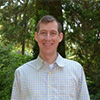
Chris Weinberger – Assistant Professor
(970) 491-1625 | chris.weinberger@colostate.edu
Christopher R. Weinberger, Ph.D., joined Colorado State University's mechanical engineering department in the Fall of 2016. He has spent the past three years as an Assistant Professor in the Mechanical Engineering and Mechanics Department at Drexel University. His professional experience includes time as a Mechanical Engineer at Lockheed Martin (2001-2005) as well as working at Sandia National Laboratories as a Harry S. Truman Fellow (2009-2012) and a Senior R&D S&E Staff member (2012-2013). Dr. Weinberger holds a Ph.D. and M.S. in Mechanical Engineering from Stanford University and a B.S. in Mechanical Engineering from Cal Poly, San Luis Obispo.
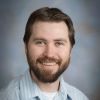
Jesse Wilson – Assistant Professor of Electrical and Computer Engineering
(970) 491-3706 | jesse.wilson@colostate.edu
Jesse Wilson earned his PhD in Randy Bartels’ lab at Colorado State University, developing techniques in ultrafast pulse shaping and impulsive Raman spectroscopy. After that, he joined Warren Warren’s lab at Duke University as a postdoc, where he has been awarded both the JenLab Young Investigator Award from the SPIE and a Ruth Kirchstein fellowship from the National Cancer Institute. He is interested in leveraging ultrafast and nonlinear optical phenomena for microscopic imaging contrast, with a specific focus on cancer imaging. Jesse is a member of SPIE, the Optical Society of America, and the American Physical Society.
Other teaching and research interests include biomedical optics, in vivo multiphoton histology and pathology, nonlinear and ultrafast optics, digital signal processing for biomedical imaging and microscopy, metabolic spectroscopy and imaging, and cancer metabolism.
The curriculum is divided into four different categories:
While you are earning your degree credits, you can also select courses that fit within one of these interest areas, for added focus in your studies. Contact your advisor to identify a plan for selecting the appropriate courses.
Courses that are currently offered via distance delivery, or will be soon, are listed below.
The curriculum for CSU's online Biomedical Engineering master's program is shaped with input from an advisory board of industry leaders. These representatives provide valuable insight regarding evolving demands and challenges in the field, and help ensure that students learn the most relevant skills for the current industry climate.
Advisory board members include:

Consultant, J. Dennis Bruner, Ph.D.
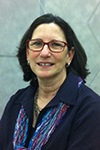
Medical Director, Medical Center of the Rockies; Advisory Chair
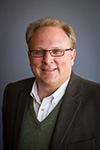
Executive Director, Infectious Disease Research Center at CSU

President of the Surgical Group, Applied Medical
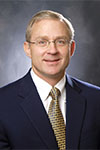
Medical Doctor, Orthopaedic Center of the Rockies
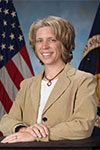
Orbital Reef Chief Scientist, Blue Origin
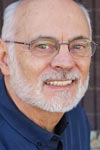
M.I.D., Boulder iQ (formerly of Samson Design Associates, Inc.)

Vice President, Product Development and Marketing, ImpediMed, Inc.

Systems and Mechanical Engineering Professor, CSU College of Engineering
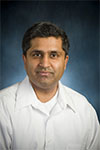
Divisional Vice President, Abbott Informatics
As a student in CSU’s online biomedical engineering master’s program, you receive the same education, learn from the same faculty, and earn the same regionally accredited degree as students on campus. Additionally, you can expect:
Learn more about CSU's rankings and accolades.
| Fall semester | June 1 |
| Spring semester | November 15 |
Start your application online and upload materials directly into the online system. You can save your progress and return any time.
Apply NowApplicants to this program must have:
Note that meeting the minimum department standards does not ensure admission to the program. Admission to Colorado State University graduate programs is based on a number of factors, including prior academic and professional experience and the personal statement.
Prepare the materials below and upload when you apply online.
Complete the online graduate application form and pay the nonrefundable application processing fee (payable online). As soon as you have completed the required information, please submit your application. Your application will not be reviewed until it is complete and all required materials have been received.
Request one official transcript of all collegiate work completed from all institutions attended. Transcripts from Colorado State University are not required. Transcripts must be received directly from the originating institution to be considered official.
Please Note: Students may be unconditionally admitted and registered in their first semester of courses with an unofficial transcript. Official transcripts must be submitted, prior to or during your first semester, before you can register for your second semester of graduate work. Failure to meet this condition will result in your dismissal from the Graduate School.
Electronic (preferred): Digital Transcripts must be submitted by the originating institution using a secure service such as parchment, eScrip-Safe, the National Student Clearinghouse, or e-Quals. Transcripts received via emails are considered unofficial. Use institution code 4075 for Colorado State University or gradadmissions@colostate.edu if the secure service requires an email address.
Mail (if necessary) Graduate Admissions Colorado State University – Office of Admissions 1062 Campus Delivery Fort Collins, CO 80523-1062
GRE test scores
GRE test scores are not required, but may be submitted if you feel these will strengthen your application. Submit official GRE General Test scores through the Educational Testing Service (select institution code: 4075, leave the department code blank). Scores are typically received by the University 4-6 weeks after your testing date.
View your application status at any time to ensure your application checklist is complete or to check on updates.
Once your complete application, including supporting materials, is received, the department admission committee will review your application and notify you of their decision.
Proof of English language proficiency is required for applicants from countries or United States territories where there are official languages other than (or in addition to) English. This includes the U.S. territories of American Samoa, Guam, the Northern Mariana Islands, and Puerto Rico.